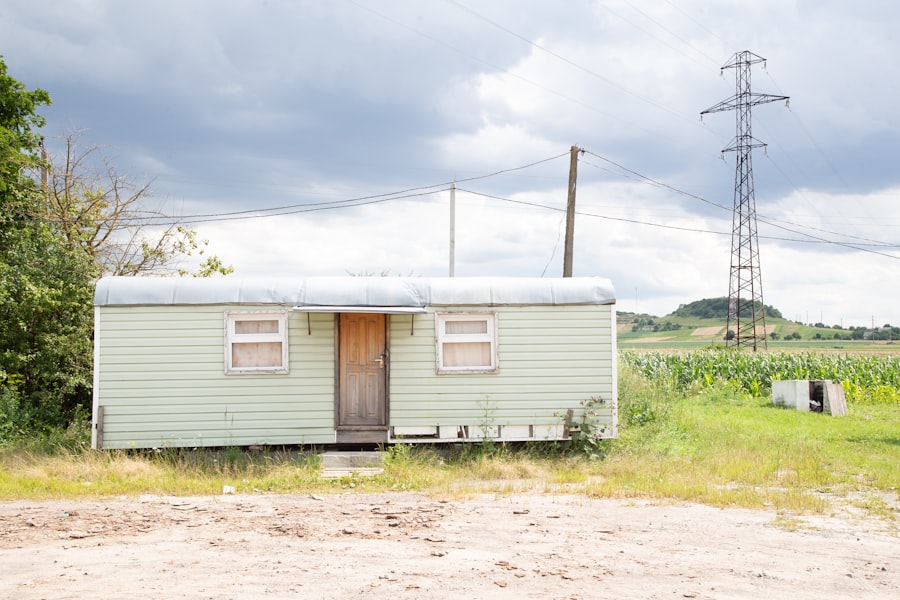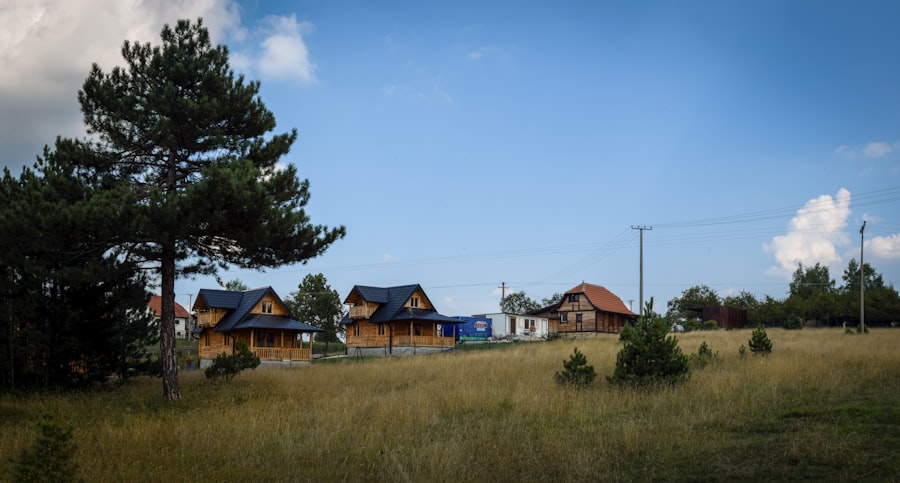Mobile homes with lots included offer a unique blend of affordability and flexibility, making them an attractive option for many homebuyers. One of the primary benefits is the cost-effectiveness of purchasing both the home and the land in one transaction. This arrangement often results in lower overall expenses compared to traditional homes, where buyers must separately acquire land and then build or purchase a house.
By bundling these two elements, buyers can save on closing costs and streamline the purchasing process, making it easier to transition into homeownership. Additionally, owning the lot provides a sense of permanence and control that renting does not. Homeowners can make decisions about their property without needing landlord approval, allowing for greater freedom in landscaping, renovations, and personal expression.
This autonomy can lead to a more satisfying living experience, as individuals can create a space that truly reflects their tastes and lifestyle. Furthermore, owning the land can also enhance the long-term investment potential of the property, as land typically appreciates over time, contributing to overall equity.
Key Takeaways
- Mobile homes with lots offer affordability and convenience by combining housing and land ownership.
- Key considerations include location, lot size, home condition, and community amenities.
- Various financing options are available, including traditional mortgages and specialized loans.
- Regular maintenance and potential upgrades can enhance comfort and increase property value.
- Living in mobile home communities provides social benefits but requires understanding community rules and resale potential.
Factors to Consider When Buying a Mobile Home with Lot Included
When considering the purchase of a mobile home with an included lot, several critical factors must be taken into account. First and foremost is the zoning regulations and land use policies in the area. Different municipalities have varying rules regarding mobile homes, including restrictions on size, age, and placement.
Understanding these regulations is essential to ensure that the chosen property complies with local laws and can be used as intended without facing future legal challenges. Another important factor is the condition of both the mobile home and the lot itself. Prospective buyers should conduct thorough inspections to assess structural integrity, plumbing, electrical systems, and any potential issues with the land, such as drainage problems or soil quality.
A comprehensive evaluation can prevent unexpected expenses down the line and ensure that the investment is sound. Additionally, buyers should consider the long-term implications of their choice, including potential resale value and market trends in the area.
Financing Options for Mobile Homes with Lot Included

Financing a mobile home with an included lot can differ significantly from traditional home loans. Many lenders offer specific financing options tailored to mobile homes, which may include personal loans or chattel loans. These types of loans typically have different terms and conditions than conventional mortgages, often requiring a larger down payment or having higher interest rates due to perceived risks associated with mobile home ownership.
For those purchasing both a mobile home and land, a conventional mortgage may be available if the property meets certain criteria. Lenders may require that the mobile home be classified as real property, which often involves affixing it to a permanent foundation and obtaining necessary permits. Buyers should explore various financing options and consult with financial advisors or mortgage brokers who specialize in mobile home transactions to find the best fit for their financial situation.
Choosing the Right Location for Your Mobile Home
| Factor | Considerations | Impact on Mobile Home Living | Example Metrics |
|---|---|---|---|
| Climate | Temperature range, humidity, seasonal weather patterns | Affects comfort, energy costs, and maintenance needs | Average annual temperature: 55-75°F; Annual rainfall: 20-50 inches |
| Proximity to Amenities | Distance to grocery stores, hospitals, schools, and public transport | Convenience and quality of life | Within 5 miles of essential services |
| Land Stability | Soil type, flood risk, and elevation | Safety and foundation durability | Flood zone rating: Low; Soil type: Clay or Sandy Loam |
| Local Regulations | Zoning laws, mobile home park rules, building codes | Legal compliance and ease of installation | Zoning: Residential Mobile Home Allowed; Permit processing time: 2-4 weeks |
| Community and Neighborhood | Safety, noise levels, and community amenities | Quality of life and social environment | Crime rate: Low; Noise level: <55 dB; Community facilities: Yes |
| Accessibility | Road quality, distance to highways, and emergency services | Ease of travel and emergency response time | Distance to highway: <3 miles; Emergency response time: <10 minutes |
Selecting the right location for a mobile home is crucial for both lifestyle satisfaction and investment potential. Factors such as proximity to essential services—schools, healthcare facilities, shopping centers, and public transportation—play a significant role in determining the desirability of a location. A well-situated mobile home can enhance daily convenience and improve quality of life for residents.
Moreover, considering the neighborhood’s safety and community dynamics is essential. Researching crime rates, local amenities, and community engagement can provide insight into whether a particular area aligns with personal values and lifestyle preferences. Additionally, understanding future development plans in the vicinity can help gauge potential changes in property value over time.
Areas undergoing revitalization or growth may present excellent opportunities for appreciation, while stagnant neighborhoods may pose risks to long-term investment.
Maintenance and Upkeep of Mobile Homes with Lot Included
Maintaining a mobile home with an included lot requires diligence and attention to detail to ensure longevity and comfort. Regular upkeep tasks include inspecting roofing materials for leaks, checking plumbing systems for leaks or clogs, and maintaining heating and cooling systems to ensure they operate efficiently. Unlike traditional homes, mobile homes may require specific maintenance practices due to their unique construction materials and design.
Land maintenance is equally important; homeowners should regularly tend to landscaping, ensuring that trees are trimmed away from structures to prevent damage during storms. Additionally, managing drainage systems on the lot is vital to prevent water accumulation that could lead to foundation issues or flooding. Establishing a routine maintenance schedule can help homeowners stay ahead of potential problems and preserve both their mobile home and lot’s value over time.
Customization and Upgrades for Your Mobile Home

One of the appealing aspects of owning a mobile home is the opportunity for customization and upgrades. Homeowners can personalize their living space according to their tastes and needs without significant restrictions often found in rental properties. From simple cosmetic changes like painting walls or installing new flooring to more extensive renovations such as adding decks or expanding living areas, there are numerous ways to enhance a mobile home.
Upgrading appliances and fixtures can also significantly improve functionality and energy efficiency. Modernizing kitchens with energy-efficient appliances or renovating bathrooms with contemporary fixtures not only enhances comfort but can also increase resale value. Homeowners should consider their budget when planning upgrades; prioritizing projects that offer the best return on investment can lead to greater financial benefits in the long run.
Community Living in Mobile Home Parks
Living in a mobile home park presents unique advantages and challenges compared to standalone properties. Many parks foster a sense of community among residents through organized events, shared amenities like pools or clubhouses, and communal spaces that encourage social interaction. This environment can be particularly appealing for families or retirees seeking companionship and support from neighbors.
However, community living also comes with certain limitations. Residents may need to adhere to park rules regarding property modifications, landscaping, or noise levels, which can restrict personal expression. Additionally, understanding lease agreements or park ownership structures is crucial; some parks operate under strict regulations that could impact long-term residency or resale opportunities.
Weighing these factors carefully can help individuals determine if community living aligns with their lifestyle preferences.
Resale Value and Investment Potential of Mobile Homes with Lot Included
The resale value of mobile homes with lots included can vary significantly based on several factors, including location, market demand, condition of the property, and overall economic trends. In areas where land is scarce or highly sought after, owning both a mobile home and lot can lead to substantial appreciation over time. Conversely, in regions where mobile homes are less desirable or face stigma, resale values may stagnate or decline.
Investors should also consider market trends when evaluating potential purchases. Analyzing local real estate data can provide insights into whether mobile homes are gaining popularity as affordable housing solutions in specific areas. Additionally, understanding demographic shifts—such as an influx of younger families or retirees—can inform investment decisions regarding mobile homes with lots included.
By staying informed about market dynamics and making strategic choices based on thorough research, buyers can maximize their investment potential in this unique segment of real estate.



